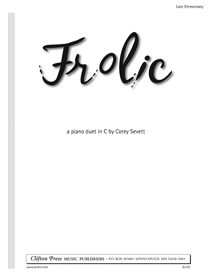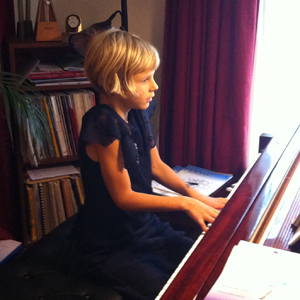After two months of lessons this school year, I am happy to report that lessons are going very well. I currently have seven new students who are brand new to the piano, and it’s been exciting to watch them grow and learn. Reading music is a whole new language of symbols and meanings, and every person reacts differently to the complex task of reacting with their bodies and brains to this new language. Parents should be assured that every students learns differently and at a different pace. They all hit roadblocks that take a little time to climb over, but they all will get over the top and move on to new challenges. I hope all the students are having a good time learning and exploring music. It’s a joy like few others in life.
I am continuing to challenge my returning students. They are figuring out how to fit daily practicing into their schedule. I know that every new grade means more homework and new activities, and that all parents are helping the kids understand how important practicing is to their musical and personal development. Lessons don’t yield much results if students don’t practice at home.
I will continue to work on communicating to each student my expectations for their work at home. I have discovered that while I write down in their notebook what I want each student to work on, some students don’t look at the notebook very often. If you feel that the notebook doesn’t work for your child or you, or that the information is incomplete or confusing, please let me know so I can make a change. Some teachers have their students write in the book, but I have found that this takes time away from other things in the lesson, and I don’t want to give up that time.
Speaking of time, I am grateful to those parents who agreed to increase lessons to 45 minutes. For me, it is making a huge difference. The extra time is allowing me to cover everything more thoroughly, and in some cases include more things in the lesson, such as ear training and composition. I am more relaxed in lessons, without feeling like I have to rush to get to everything. Again, it is different with each student, but with everyone the extra time is being used constructively.
At the November 17 recital, my goal is for each student to demonstrate their skill and artistic abilities at the piano. I try to keep the experience as relaxed as possible while still giving them an important musical experience. Playing for others, and the hard work necessary to achieve a high a level of excellence in their recital performance are worthwhile experiences. This year two adults will be playing pieces by Chopin—myself and an adult student who really enjoys performing for others. I look forward to seeing you there!
 I’m please to announce that I am the winner of the 2013-14 Minnesota Music Teachers Association Original Duet Composition Contest. My duet “Frolic–a duet in C” was selected in the Junior A level and will be performed at the MMTA Honors Concert in June 2014.
I’m please to announce that I am the winner of the 2013-14 Minnesota Music Teachers Association Original Duet Composition Contest. My duet “Frolic–a duet in C” was selected in the Junior A level and will be performed at the MMTA Honors Concert in June 2014.